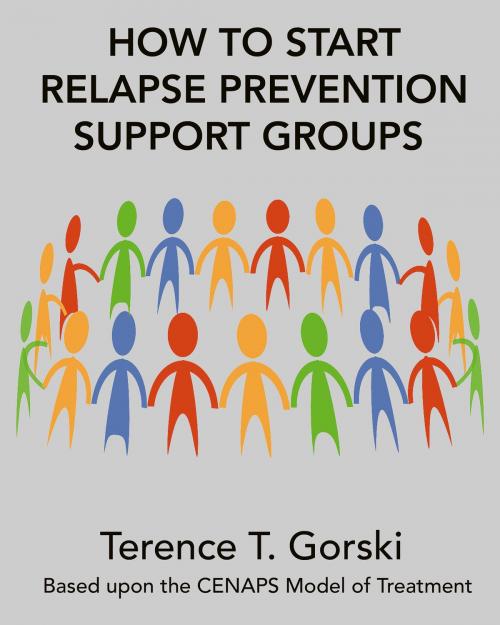How to Start Relapse Prevention Support Groups
Nonfiction, Health & Well Being, Self Help, Addiction, Substance Abuse| Author: | Terence T. Gorski | ISBN: | 9781483586779 |
| Publisher: | BookBaby | Publication: | November 8, 2016 |
| Imprint: | BookBaby | Language: | English |
| Author: | Terence T. Gorski |
| ISBN: | 9781483586779 |
| Publisher: | BookBaby |
| Publication: | November 8, 2016 |
| Imprint: | BookBaby |
| Language: | English |
Relapse prevention support groups are an innovative approach to recovery. The concept grew out of the desperate need of relapse-prone people to recover. Relapse support groups are self-help groups designed to support the growing number of recovering people who are using relapse prevention therapy as part of their recovery programs. As more recovering people got involved in relapse prevention support groups, I began to get calls and letters asking for advice on how to start and maintain a group. These calls disturbed me because I didn't know how to answer the questions that I was being asked. So I began to do some research. I went right to the experts, the pioneers who have already started relapse prevention support groups and are learning how to make them work. I have attempted to combine what I have learned from numerous conversations across the United States and Canada and condense that information into a simple question-and-answer format. I have included the most commonly asked questions about relapse prevention and relapse prevention support groups. It is my goal to give you enough information to start a group if you want to do so. This information comes from recovering people who have started relapse prevention support groups. Because these groups are so new, there are no right answers. Nothing is etched in granite. Some of the groups I've heard about succeeded. Others failed. I want to share with you my impressions of what helped the successful groups succeed and what caused the unsuccessful groups to fail. You will be given guidelines not absolute recommendations. Each group is unique, and those that succeed build upon the special strengths and weaknesses of their members. Successful groups focus heavily upon the needs of their members, give special attention to new members, keep the focus on identifying and managing warning signs, and allow for a diversity of discussion and feedback among members.
Relapse prevention support groups are an innovative approach to recovery. The concept grew out of the desperate need of relapse-prone people to recover. Relapse support groups are self-help groups designed to support the growing number of recovering people who are using relapse prevention therapy as part of their recovery programs. As more recovering people got involved in relapse prevention support groups, I began to get calls and letters asking for advice on how to start and maintain a group. These calls disturbed me because I didn't know how to answer the questions that I was being asked. So I began to do some research. I went right to the experts, the pioneers who have already started relapse prevention support groups and are learning how to make them work. I have attempted to combine what I have learned from numerous conversations across the United States and Canada and condense that information into a simple question-and-answer format. I have included the most commonly asked questions about relapse prevention and relapse prevention support groups. It is my goal to give you enough information to start a group if you want to do so. This information comes from recovering people who have started relapse prevention support groups. Because these groups are so new, there are no right answers. Nothing is etched in granite. Some of the groups I've heard about succeeded. Others failed. I want to share with you my impressions of what helped the successful groups succeed and what caused the unsuccessful groups to fail. You will be given guidelines not absolute recommendations. Each group is unique, and those that succeed build upon the special strengths and weaknesses of their members. Successful groups focus heavily upon the needs of their members, give special attention to new members, keep the focus on identifying and managing warning signs, and allow for a diversity of discussion and feedback among members.















